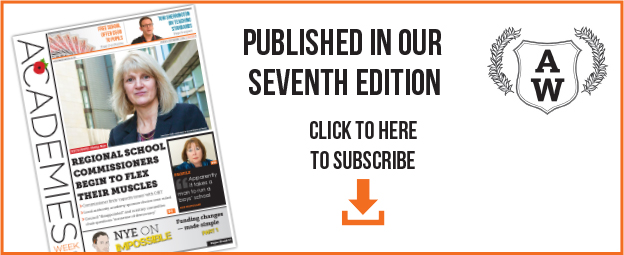A free school in south London that opened with 17 pupils has said it will have no problem paying back overfunding, after it emerged that it was being funded for almost double the number of pupils it had on roll.

In September, Schools Week reported that Trinity Academy in Brixton had 17 pupils, rather than the 120 it had originally been approved for.
In response to a freedom of information request submitted by a local education activist, however, it emerged that the Department for Education (DfE) was funding the secondary school as if it had 35 pupils on roll.
There is no suggestion that this is because the school received preferential treatment. All new academies are funded based on an estimate of pupil numbers
Academies which are over-funded see the amount ‘clawed back’ by the Education Funding Agency (EFA) the following year.
Asked about the requirement to repay funds next year, a spokesperson for Trinity Academy said it would be managed “through sound financial modelling, sensible budgeting and keeping a vigilant eye on expenditure.”
The school said it had been working with the EFA to ensure its budgeting and financial modelling was robust, and that it had budgeted to only spend money provided for pupils actually on roll this year.
The spokesperson said: “Trinity’s budget is based on actual pupil numbers on roll, not on estimates or the funding number.
“That means any money likely to be subject to clawback during the next academic year is effectively ring-fenced. Consequently there will be no difficulties next year in repaying it.”
An impact assessment for the school published last week by the DfE also showed that another free school had opened one mile away from Trinity Academy’s Brixton Hill site in September 2013. The assessment showed the school had a 39 per cent surplus of places in its first year, versus their initial planned admission number.
Trinity Academy opened on part of a site bought by £18m, after difficulties in securing a temporary site. The former Lambeth College site is to be redeveloped, with part of it providing the free school’s permanent home and part being used by the college.
Shadow business secretary and MP for Streatham, Chuka Umunna, said: “For a multi-million pound investment in our community to fail to reach the vast majority of local young people at a time of fiscal constraint is a huge wasted opportunity for our area.”
The school’s roll has increased to 19 since September, and the school spokesperson said they believed it would be over-subscribed within two years of opening.
The spokesperson added: “We believe that Trinity will be shown to represent excellent value for money and that we will have delivered a secondary school in double-quick time; at much lower cost than many previous school building projects in inner London; and completing it at the right moment to help meet a predicted spike in demand.”
Asked about Trinity’s situation, a DfE spokesperson: “It is perfectly normal for any type of new school to take time to fully establish itself and as part of its application the school had to provide plans showing how it would operate with a smaller pupil roll.
“Trinity will only receive funding for the pupils who attend the school.”







Your thoughts